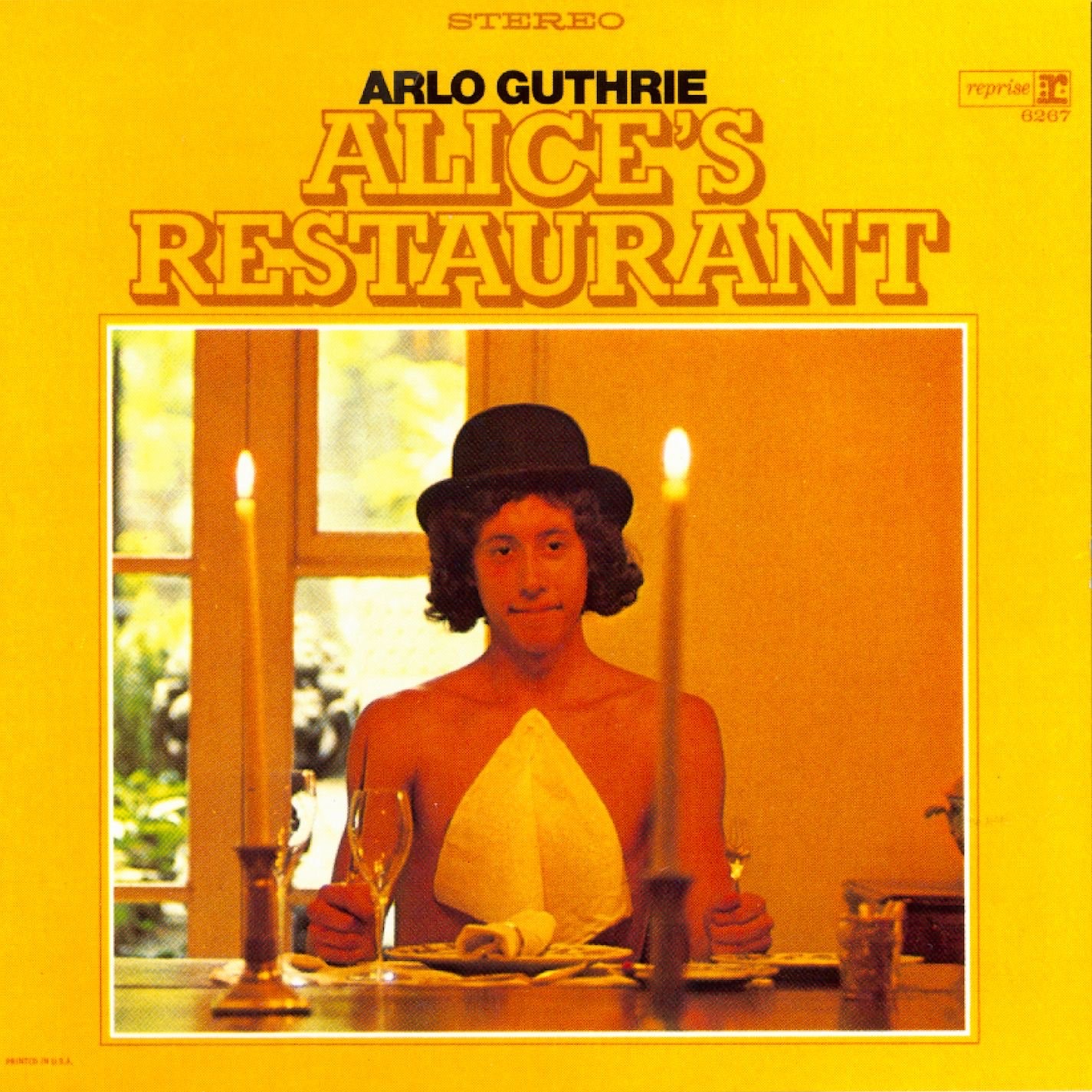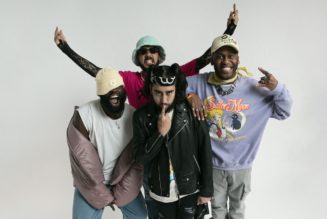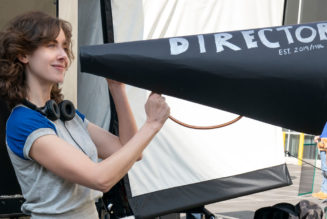
When I was growing up, every Thanksgiving there was a local TV channel that played the movie Alice’s Restaurant on a loop. That’s where it stayed until dinnertime and then resumed later that night. To this day, I can’t think of a more worthy Turkey Day tradition than commemorating the 1965 Thanksgiving that Arlo Guthrie and his friend dumped “a half a ton” of garbage in hokey Stockbridge, Massachusetts, thereby getting into some exaggerated small-town trouble that would later, in a crazy turn of events, help him get him out of going to war.
The song came first, released in 1967, just over 18 minutes of jovial, folksy storytelling—“Now it all started two Thanksgivings ago…”—where Arlo recounts the whole yarn in song form. He tells the absurdly sordid tale, starting with the town dump being closed, disposing a serious heap of trash in a ditch, getting caught and going to jail, followed by a trial of “American blind justice” (where the judge was actually blind), and, of course, the draft.
In 1965, President Lyndon B. Johnson ordered doubling the draft calls, and by the end of the year over 230,000 young men were inducted. Between 1964 and 1973, 2.2 million American men were drafted to serve in Vietnam. By the end of the song, Arlo declares that you can join his movement if you just sing along, The Alice’s Restaurant Anti-Massacree Movement, actively against ridiculous nonsense, like arresting someone for littering, or, more pointedly, the Vietnam War itself. Despite the audience’s laughter throughout the song’s seminal live track, prompted by Arlo’s hilarious retelling, this is a protest song. The fact that it had kids and grownups alike singing and laughing for decades, makes it one of the most genius protest songs of all time.
[embedded content][embedded content]
The 1969 mostly-autobiographical movie provides a separate and more well-rounded picture. Directed by Arthur Penn and starring Arlo himself, it opens with our hero registering for the draft, an unimpressed clerk first asking him to write down his actual birthday (instead of “Scorpio”), then inquires how Huntington’s Disease, an inherited and fatal deterioration of nerve cells in the brain, could be an issue with Arlo going to war if he had no visible signs of illness. (“Runs in the family. My father has it and my grandmother had it.”) Legendary folk singer (and Arlo’s father) Woody Guthrie’s heartbreaking Huntington’s journey is portrayed throughout. In watching the film it’s impossible not to acknowledge that this young man has no idea if the illness will strike him, too. (The first genetic marker wasn’t identified until 1983.) Arlo famously declined genetic testing to know for sure if the onset was in his future and of all the bullets he’d dodged, this was the greatest.
It’s after about an hour in that Arlo begins his Thanksgiving-garbage story, “being the biggest crime of the last 50 years”, and, well, you know how that goes: fated hijinks ensue. The first hour shows us how his misadventures brought him to Alice and Ray’s home in the now-famous Stockbridge church. He tried to go to college, but schools had a habit of “dropping out” around him and he seemed to have “this habit of getting arrested.” His hippy-ness pisses people off wherever he goes. Free love isn’t as perfect as it’s often made out to be, either. He never claims to be a saint—far from it—but 22-year-old Arlo, with his bramble of brown hair and ivory skin, positively glows like an angel as he flits in and out of this countercultural wonderland, his warmth and sweetness shining through.
With a lifelong career filled with music, “Alice’s Restaurant,” the song and its tale, would eventually become Arlo’s signature. And so, if it wasn’t for Alice and her Thanksgiving dinner, which produced all that trash, and Arlo and his friend getting caught, which turned into a bigger deal than it should have, he may have gone to war and never lived to tell this tale, which is now over a half-century old. And the real-life Alice—“Remember Alice? This is a song about Alice…”—relocated to Provincetown, where she still resides, now in her early 80s.
In 2020, Arlo announced his retirement from touring with a social media post titled “Gone Fishing.” After a series of strokes, including one on Thanksgiving Day “of all freaking days.” He was on his way to the annual free community turkey dinner provided by the Guthrie Center, and couldn’t see straight: “Everything was spinning around, sort of like the old days, but without the help of illegal substances.” He was taken to the hospital, but in true Arlo fashion, he “broke out” because he was to play a sold-out show at Carnegie Hall. When the 2020 pandemic hit and his shows were canceled, it seemed like the right time to stop performing.
In the same post he addressed the all-important question he asked in “Alice’s Restaurant”: “Kid! Have you rehabilitated yourself?” He finally provides his answer: “No! A healthy suspicion of authority, left, right or center has been the hallmark of my career since the beginning, and I will continue to poke fun at cultural, political, or personal absurdities as I see it. I’m actually looking forward to it.”
And you can, too.










